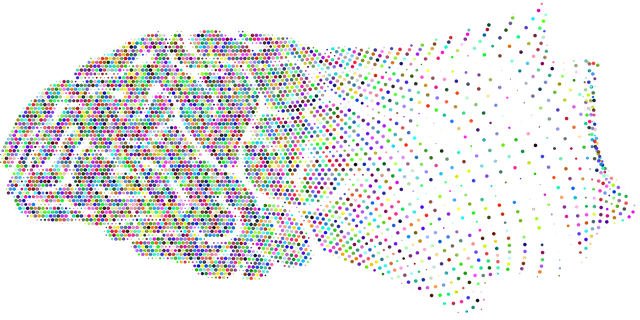Data collection is a cornerstone of effective mental health therapy, particularly in Littleton Phobias Therapy, where understanding triggers, avoidance behaviors, and coping mechanisms enables personalized exposure therapy. Analyzing patient records reveals community trends and risk factors, guiding targeted Mental Health Awareness initiatives. Therapists use data to track client progress, adjust treatment strategies, incorporate evidence-based practices, and reduce stigma. By integrating data insights into advocacy efforts, policies can enhance prevention, improve access to care, and ultimately promote better mental health outcomes for services like Littleton Phobias Therapy.
Mental health data analysis is a powerful tool in the quest for effective therapy. From understanding the intricacies of data collection to interpreting complex patient records, this process offers profound insights that can revolutionize treatment plans. This article delves into these key areas, focusing on strategies like those employed by Littleton Phobias Therapy to harness mental health data, uncover trends, and tailor interventions for better patient outcomes. By exploring these methods, therapists can enhance their practices and provide more personalized care.
- Understanding Mental Health Data Collection for Effective Therapy
- Analyzing Trends: Uncovering Insights from Patient Records
- Interpreting Results: Strategies for Therapists to Enhance Treatment Plans
Understanding Mental Health Data Collection for Effective Therapy

Understanding Mental Health Data Collection is a cornerstone for effective therapy and treatment plans. Accurate data provides therapists with insights into individuals’ experiences, behaviors, and emotional states, enabling them to tailor strategies for optimal care. In the context of Littleton Phobias Therapy, for instance, collecting data on specific phobia triggers, avoidance behaviors, and coping mechanisms allows therapists to design personalized exposure therapy sessions that address root causes effectively.
A robust Mental Health Policy Analysis and Advocacy is also crucial for ensuring a supportive environment where quality mental health services are accessible to all. This involves understanding community needs, advocating for policy changes that promote Self-Care Routine Development for Better Mental Health, and addressing systemic barriers in Depression Prevention. By integrating data-driven insights into advocacy efforts, we can shape policies that enhance prevention strategies, improve access to care, and ultimately foster better mental health outcomes.
Analyzing Trends: Uncovering Insights from Patient Records

Analyzing patient records can provide powerful insights into mental health trends within specific communities or demographics. By examining data from various sources, such as therapy sessions at Littleton Phobias Therapy, researchers and clinicians can identify patterns and correlations that shed light on prevalent issues and unique challenges. This process involves delving into the details of individual cases to uncover common themes and risk factors, allowing for a more nuanced understanding of mental health landscapes.
Through this analysis, Mental Health Awareness initiatives can be tailored to address specific needs. For instance, identifying clusters of anxiety disorders might lead to the development of targeted Empathy Building Strategies or Compassion Cultivation Practices within schools or workplaces. By translating data into actionable insights, professionals can contribute to a more compassionate and supportive society, fostering better mental well-being for all.
Interpreting Results: Strategies for Therapists to Enhance Treatment Plans

When therapists interpret results from mental health data analysis, they gain valuable insights into their clients’ progress and areas needing improvement. This involves identifying patterns in symptoms, tracking changes over time, and comparing outcomes against established norms and treatment goals. For instance, a therapist treating phobias in Littleton might analyze pre-and post-treatment data to measure the effectiveness of exposure therapy. If data reveals significant reductions in anxiety scores and avoidance behaviors, it indicates successful treatment. Conversely, persistent high levels of certain symptoms could signal the need for alternative approaches or adjustments to the existing treatment plan.
To enhance treatment plans based on data interpretations, therapists should employ strategic thinking and adaptability. This includes integrating evidence-based practices tailored to individual needs, incorporating new techniques shown to be effective in treating specific mental illnesses (such as depression prevention strategies), and considering cultural factors that might influence outcomes. Additionally, staying informed about Mental Illness Stigma Reduction Efforts can help therapists foster a supportive environment, encouraging open communication and better engagement from clients. Engaging in the production of a Mental Wellness Podcast Series can also offer unique insights into emerging trends, best practices, and client perspectives, further enriching treatment strategies.
Mental health data analysis is a powerful tool that can significantly enhance therapeutic outcomes, especially in practices like Littleton Phobias Therapy. By understanding patient records and interpreting trends, therapists can tailor treatments more effectively. This strategic approach not only improves individual care but also contributes to the broader mental health landscape, ensuring more accurate diagnoses and successful recovery paths. Through continuous analysis and adaptation, therapists can provide dynamic support, ultimately fostering better patient outcomes.









